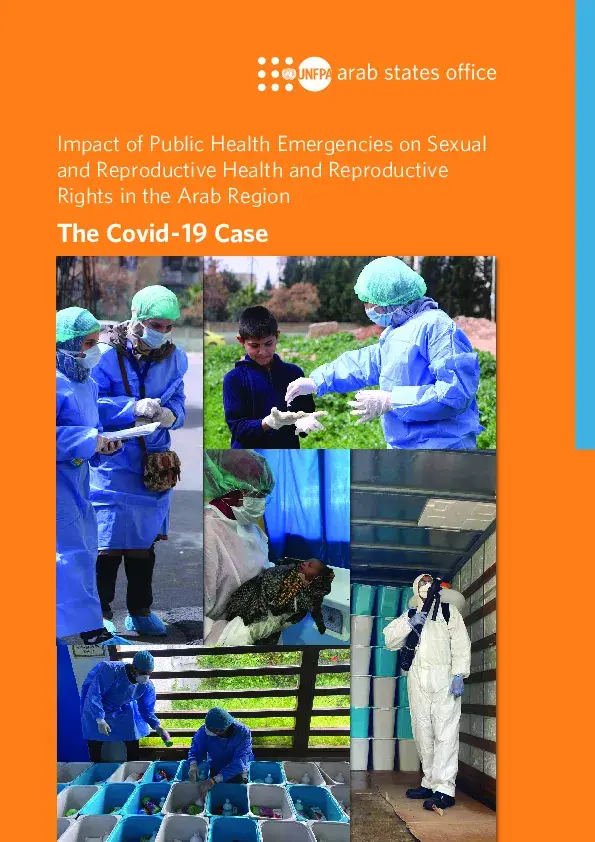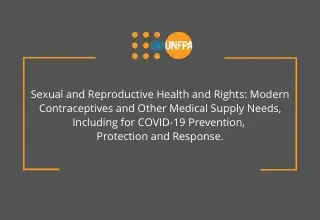In the last decade the world has experienced many public health emergencies, similar to the current novel COVID19 pandemic (e.g. Ebola, MERS, Cholera, Polio and Zika epidemics). Demand on health care services continued during health emergencies including general health care such as Non-Communicable Diseases (NCDs), mental health services, immunization programs, as well as SRH services such as family planning (FP) and maternal health (MH)1,2. Although often overlooked, SRH is essential for sustainable development and women’s empowerment3. SRH is a basic human right, which has been captured in many international agreements such as the Programme of Action of the International Conference on Population and Development (ICPDPoA), the Sustainable Development Goals (SDGs), especially goal 3 on health and goal 5 on gender equality, as well as the commitments made during the World Humanitarian Summit (2016), to name a few. While these international conventions and treaties have been ratified by almost all countries and have called for giving more importance to reproductive health during crises, SRH is still not well prioritized at the level of other needs such as food, water, sanitation and hygiene (WASH), or shelter.
Sexual and reproductive health
Human Rights and Gender Equality
What we do
Impact of Public Health Emergencies on Sexual and Reproductive Health and Reproductive Rights in the Arab Region

Publisher
UNFPA
Number of pages
7
Author
UNFPA
Publication
Impact of Public Health Emergencies on Sexual and Reproductive Health and Reproductive Rights in the Arab Region
Publication date
02 June 2020




